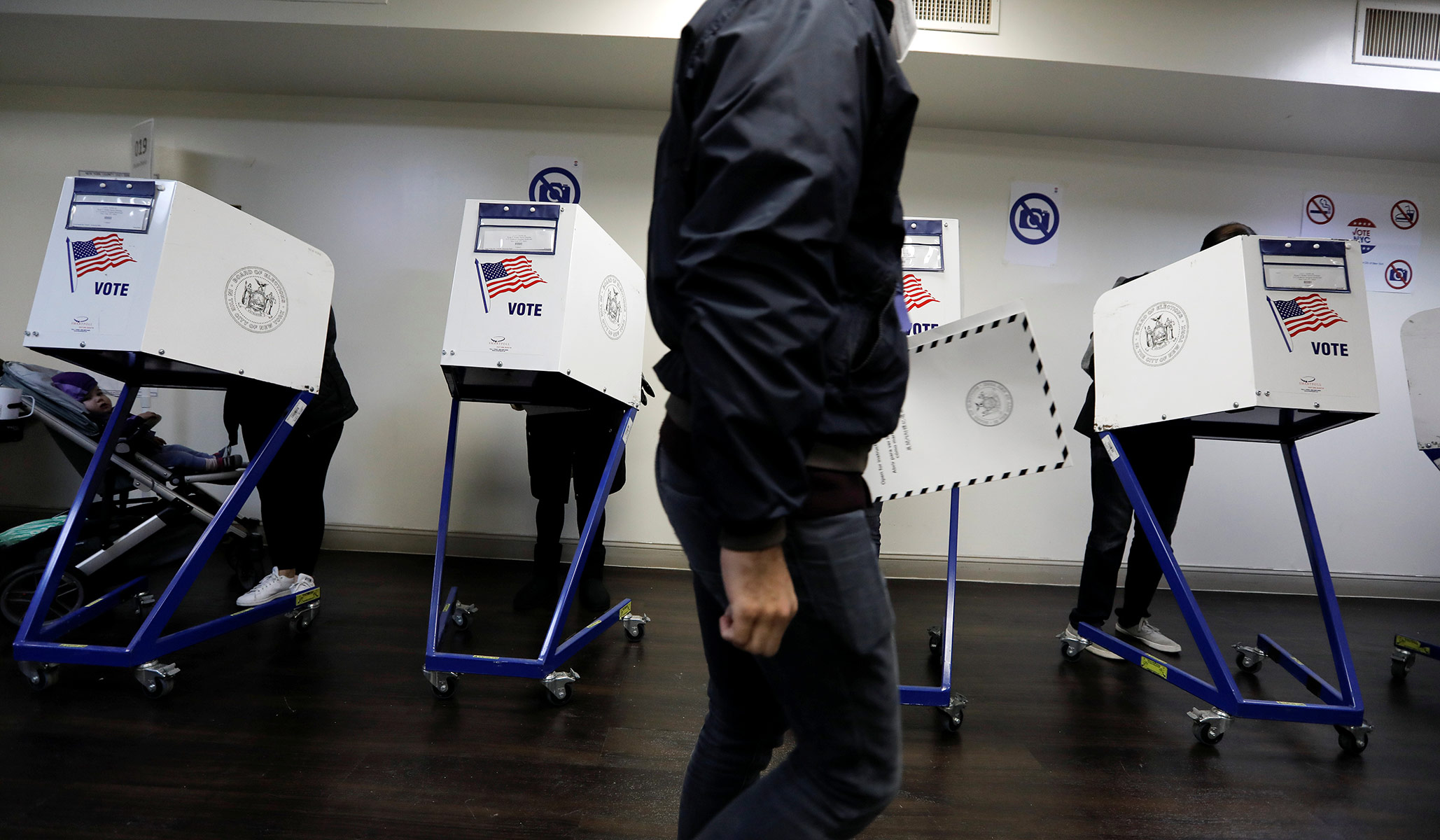Democrats on the New York City Council, last seen expelling Thomas Jefferson from their chamber, have decided to attack another venerable pillar of American democracy: citizenship. A veto-proof majority of the Council, backed by incoming mayor Eric Adams, plans to allow over 800,000 green-card holders and non-citizen residents with work permits to vote in municipal elections. This is not a small number of additional voters: no candidate for Mayor of New York has received 800,000 votes since Rudy Giuliani in 1993.
The immediate objection to the plan, which prompted even Bill de Blasio to veto it previously, is that it violates the state constitution, which provides that "Every citizen shall be entitled to vote at every election for all officers elected by the people . . . provided that such citizen is eighteen years of age or over and shall have been a resident of this state, and of the county, city, or village for thirty days next preceding an election," and that "laws shall be made for ascertaining, by proper proofs, the citizens who shall be entitled to the right of suffrage hereby established." It further requires the secret ballot for "elections by the citizens."
No state permits non-citizens to vote. Ballot initiatives in Alabama, Colorado, and Florida explicitly limited the vote to citizens by overwhelming popular majorities in 2020, joining Arizona and North Dakota. The constitutions of many other states are written, like New York's, with the assumption that voting rights derive from citizenship.
Each of the guarantees of voting rights in the national Constitution — in the 14th, 15th, 19th, 24th, and 26th Amendments — is explicitly limited to "citizens of the United States." Since 1996, federal law has made it a felony for non-citizens to vote in federal elections, although federal law allows states to make their own choices.
Non-citizen voting is the latest push by progressives — along with felon voting and mass amnesty — who fear that they cannot win elections conducted only among law-abiding American citizens. San Francisco is presently the only major city to allow it, and the governance of San Francisco is not exactly a model that anyone should emulate. Chicago also allows non-citizens to vote in some school elections, as do several Maryland municipalities.
The Vermont legislature recently overrode a veto by governor Phil Scott of a plan to permit non-citizens to vote in Montpelier and Winooski. That plan faces its own legal challenges under Vermont's constitution. The Illinois legislature and the city council of Washington, D.C., are also both considering proposals for non-citizen voting.
There are good reasons why Americans have traditionally limited the vote to citizens. Citizenship is no mere formality, as anyone who has attended a citizenship ceremony can attest. It is a bond of right, responsibility, and affection between the citizen and the nation. Duties such as voting and jury service have long been essential attributes of citizenship, limited to those who by residence and public declaration of allegiance have permanently joined the community. We require new citizens to pass a test to demonstrate their understanding of our history, values, and political system.
Adding the votes of non-citizens dilutes the votes of citizens as well as the value of citizenship itself. Moreover, while the push for legal resident voting is couched in part in the rhetoric of taxation without representation, anyone who has followed progressive politics can confidently predict that the success of these measures will lead to further efforts to enfranchise "undocumented" illegal aliens next. But non-citizens are not a separate, oppressed class; those who choose to become citizens are, like citizens under age 18, passing through a temporary status.
The Founders, though they welcomed immigrants and set for them a path to become citizens, were cautious about extending the franchise immediately to new arrivals. The proper time period to become a citizen was hotly debated: Congress changed it four times between 1790 and 1802, ranging from two years to 14 years before settling on five years. The intensity of the debate reflected the importance they placed on the status of citizen.
Alexander Hamilton, himself an immigrant, wrote that "The impolicy of admitting foreigners to an immediate and unreserved participation in the right of suffrage, or in the sovereignty of a Republic, is as much a received axiom as any thing in the science of politics, and is verified by the experience of all ages." Jefferson warned that masses of immigrants from European monarchies "will bring with them the principles of the governments they leave, imbibed in their early youth; or, if able to throw them off, it will be in exchange for an unbounded licentiousness, passing, as is usual, from one extreme to another. It would be a miracle were they to stop precisely at the point of temperate liberty." Maybe that is why the City Council didn't want him to see what it would do next.
Just this month, New York State's voters soundly rejected misbegotten progressive efforts to water down the state's requirements for registration and voting. If the City Council votes to dilute the voting rights of the city's citizens, the state should step in to protect them.
| |
| THIS BREAKING NEWS ITEM  |
| |
| ||||||||||||||||||||||||||






No comments:
Post a Comment